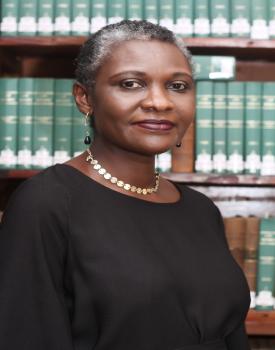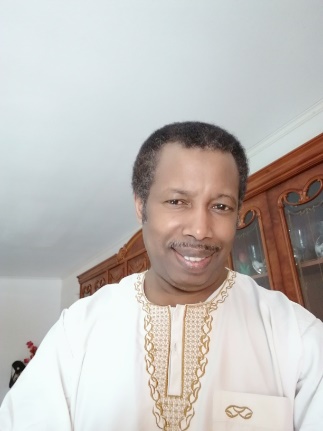On this special occasion, I wish, first of all, to express our thanks to the Honourable Chief Justice for the pluck of resuming this important and noble tradition of the legal profession in marking the beginning of a new legal year, and for granting us the privilege to speak at this gathering on behalf of The Gambia Bar Association. However I hasten to add that, this legal year is not the old age traditional legal year that the young ones at the bar and those of us not so young long for.
The old tradition of going to the mosque on Friday and thereafter having a church service on Sunday followed by a procession down the Independence drive to the Law Court Complex marks the beginning of a new legal year. We urge your Lordship the Chief justice to restore this lovely tradition which not only signifies that The Gambia is a secular state but reinforces the unity of the Gambian people irrespective of race, religion, tribe and color. We also look forward to the Attorney General and leader of the bar hosting the usual Legal Year Reception.
This ceremony of the opening of the legal year does not only afford us an opportunity to review the situation of our Judiciary and judicial system during the past years, but also to chart the way forward for this year; for the legal profession and the administration of justice in the country.
The paramount quest of the Bar Association has been, and will always be, for the Constitution and its provisions in regard to the rights and freedom of the citizen to be upheld and be regarded by all authority as sacrosanct; for the rule of law to be observed by all, and the independence of the Judiciary respected. In our opinion, the independence of the Judiciary is an issue, which is so important and critical to our progress as a nation that it requires to be given constant attention.
The Judiciary in a Constitutional State is normally considered to be an aspect of the division of power, but it should also be seen in its relation to the structure of the legal profession, and in a democracy, both the spirit and the tradition that respect judicial independence must be cultivated and guaranteed. Issues that cannot be resolved by the other arms of Government have a tendency to end up in the courts for determination, especially matters, which concern provisions in the constitution and the law. Martin Luther King in one of his speeches had this to say, “Judicial decrees may not change the heart but they can restrain the heartless.”
Thus, in this regard, there should be insistence on obstacles to the ready dismissal of judges, and prohibition of the vesting of judicial functions other than in duly constituted courts of law.
Also, even though the remuneration of judges is charged directly on the Consolidated Revenue Fund, it is perhaps now opportune, in furtherance of the independence of the judiciary, for its independence to be extended to its financial operations as well.
The judiciary should be ready and poised to undertake the onerous responsibilities and duties that will emanate from the ongoing legal processes with regard to wanton abuse of the law and human rights of many citizens. This will require the availability of sufficient resources for ensuring the prompt and fair dispensation of justice.
The courts must be credible, and be seen to be a-political. This proposition for the financial independence of the Judiciary is vital in that an independent Judiciary is as valuable to Government as it is to the people as a whole. In this regard the cost of litigation must not be made exorbitant for the litigant otherwise we run the risk of denying them justice.
It should however be emphasized that this notion of the independence of the Judiciary also encompasses the independence of the Bar as a professional organization, as well as the personal independence of its members, as the relationship between the Bench and the Bar is symbiotic and that is why the Gambia Bar Association was very much involved in identifying some of The Gambian judges here present for appointment to the bench.
A strong Bar ensures a strong Bench, because our judges, having been barristers prior to becoming judges, expect the Bar’s independence to ensure that legal arguments are presented with a clear degree of probity and vigour.
Thus the judgments of any court are indeed the collaborative efforts of the Bar and the Bench in order to arrive at a definitive decision as to the legal principles that relate to the facts of a case.
The independence of advocates arguing a case fully, and with great conviction does not only benefit the judge but also the public. In the words of Justice Oliver Wendell Holmes, of the U.S. Supreme Court; “Shall I ask what a court would be unaided? The law is made by the Bar, even more than the Bench”.
Another legal luminary, Justice Stone, puts it thus; “Society of necessity has a government of laws and yet of men, and the demand for legal autonomy is often seen as a demand for the legal freedom of the lawyers from political dictation or influence”. Hence the theme of my Statement this morning is COURAGE.
The advocate in order to speak fearlessly on behalf of his client must have courage to do so in the face of threats directed against him, and also, against the court before which he appears, so judicial courage is required as well.
This view has been expressed more succinctly by Sir Frederick Pollock in his book “THE GENESIS OF THE COMMON LAW”; describing the common law as “OUR LADY”, he states: “Our lady” looks for trusted servants who will stand by her in the day of need.
She demands fearless and independent judges drawn from a fearless and independent bar, men “(and women)” who will not swerve from the straight path to the right hand for any pleasure of rulers, be they (autocratic) aristocratic or democratic, nor be drawn aside to the left by the more insidious temptation of finding popular favour in opposition.
If our lady’s servants are not of that spirit, all the learning of all their books will not save them from disgrace or her realm from ruin. If they are, we shall never see the enemy whom she and they will be afraid to speak with in the gate”.
There is also the element of out-of-court independence of the advocate which principle obliges an advocate to give legal advice to any person seeking it based on truth and the law, even if such advice may not be what that person expects to hear.
It is in this context that the Gambia Bar Association, as an institution, assumes its inalienable right of occasionally making public statements about current legal issues of public concern so as to promptly nip in the bud any likely corrosive effects on public trust in the judiciary or the legal profession.
The Bar Association has, therefore, to remain strong and must continue to serve the judiciary in particular and the public in general faithfully. As an instrument within the judicial system, the Association will step up its contribution towards the country’s growth and development that will engender peace and national unity.
It is for this reason that we are opposed to the action taken recently to resuscitate the establishment of a youth movement based on a personal agenda. Such action can only result in the perpetuation of disunity among the youth who should now be encouraged to work in harmony in credible social activities. This is a time for reconciliation and healing in the nation.
Is it not an affront that an edifice that was built from the labour of our farming community was taken over and converted by the NIA into a torture chamber, flanked by our Ministry of Justice, and facing the Courts of Justice, whose very purpose is to defend the law and the rights of the individual enshrined in the constitution? Now that we all know the atrocities and evil that were perpetrated within that complex, we have a charge to take swift action to begin, at once, to restore the dignity of our nation, even before getting into the issues of reparation of victims and vetting of perpetrators some of whom are still within the service of the Government.
Even now while victims are testifying before the TRRC, substantial evidence in regard to the atrocities committed within the NIA is being obliterated while the government watches silently. Silence we all know means consent. In the name of justice, it is our resolve to ask his Excellency the President that that very edifice of iniquity be handed over to the judiciary now, for the purpose of transforming it into a veritable place and home of justice in this land. This will be the foundation of building genuine and lasting peace by delivering services to all citizens and to signal the break with the abusive past.
The way forward demands that all Gambians, both young and old, should engage in activities that bring about progress, peace and stability in the nation, with a spirit of reconciliation bolstered by a democratic culture, and founded on the strict observance of the rule of law and justice for all. In this regard, the Bar Association will be launching its law clinic on the 6th of February 2019 to which, this opportunity is being seized to invite all the new members of the Association to participate.
The Gambia Bar Association is also currently working on a scheme for the introduction of continuing legal education, and some other programmes that will strengthen the Association with a view to making its services more accessible to all interested parties.
Much as the work ahead of us may seem great and demanding, I want to believe that it will not be beyond our ken and collective efforts as a nation endowed with a lot of blessings. Let us therefore strive to live up to the mantra: “NEVER AGAIN.”
In the name of The Gambia Bar Association, I pray that God will grant us a successful Legal Year. I thank you all.
RACHAEL Y MENDY
President, GBA
3rd February, 2019





